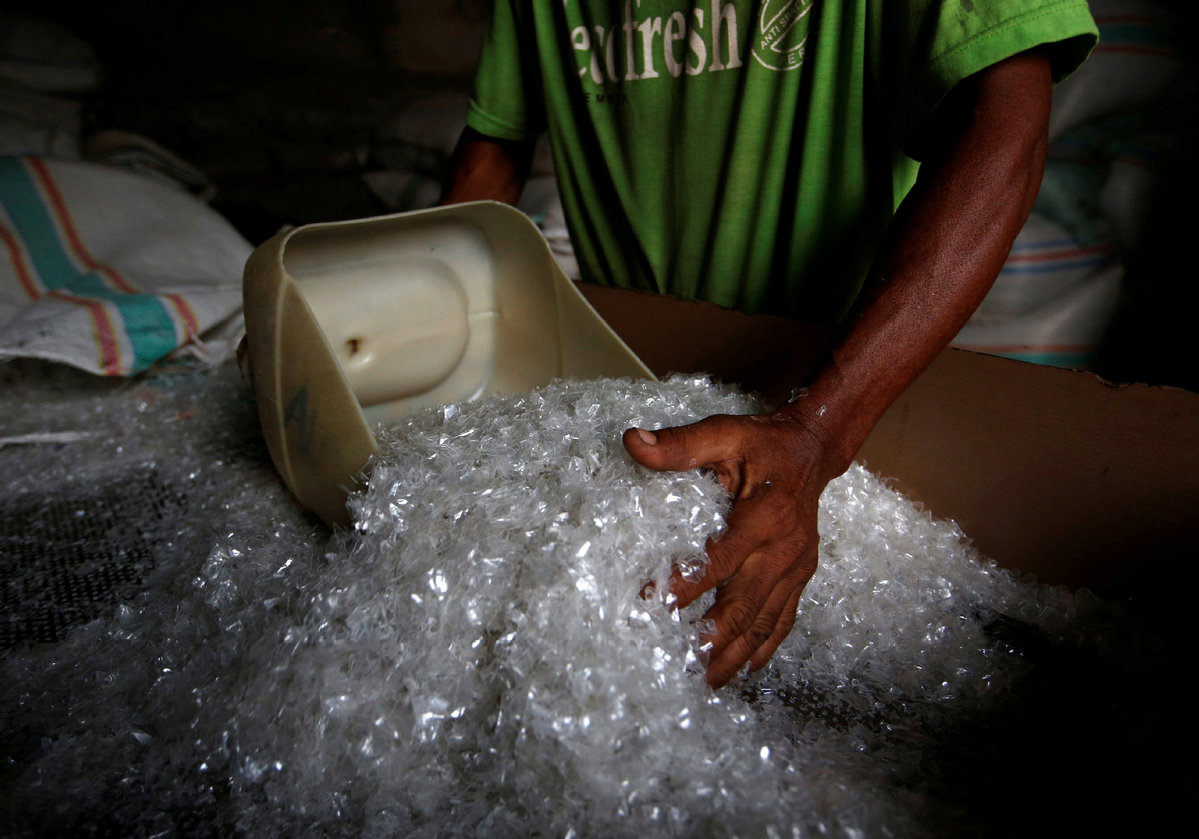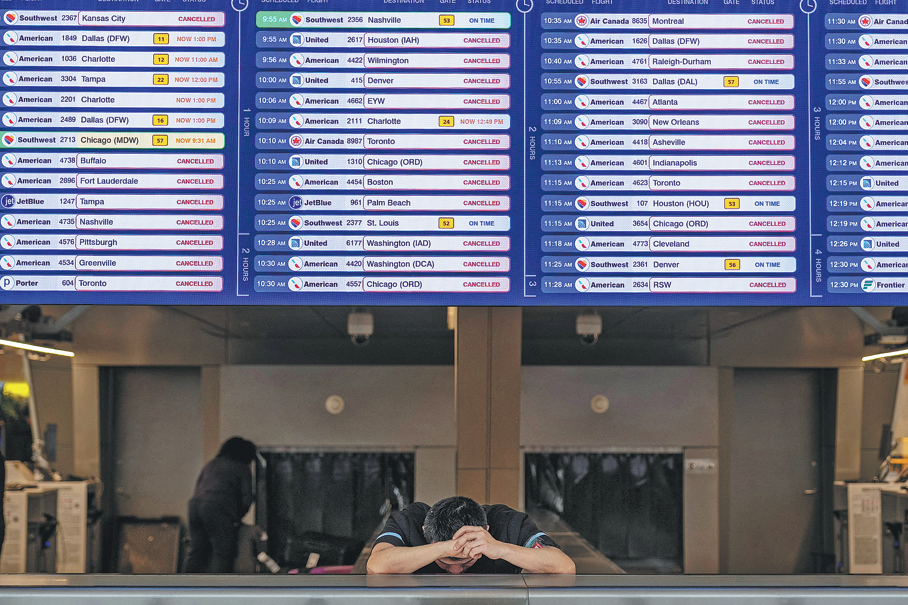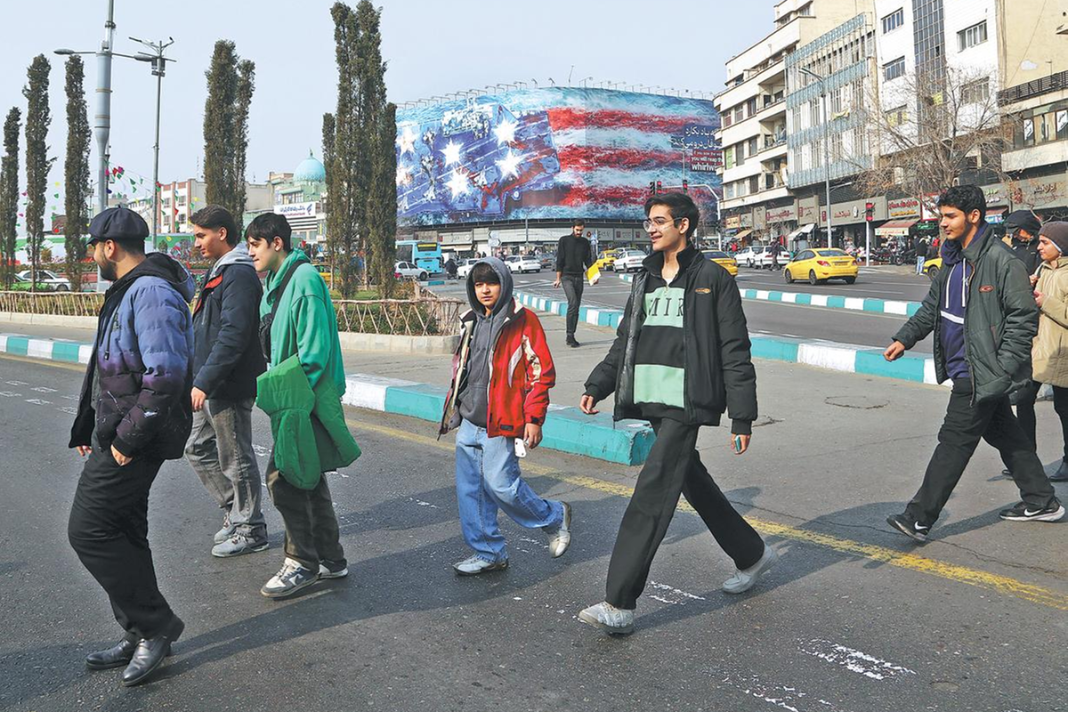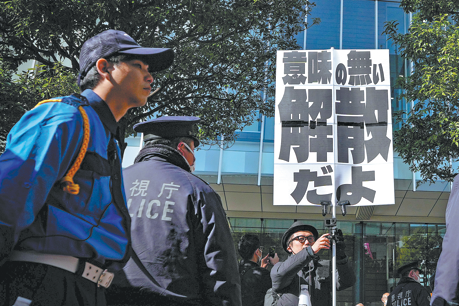A recycling crisis as markets shrink


Cities scale back programs
With markets disappearing, hundreds of cities across the US have begun scaling back their programs, as financially strapped recycling companies are shut down and recyclable waste is stockpiled at sorting facilities, according to WasteDive, a trade news publication for companies in waste industries.
While conscientious residents are still carefully separating recyclables from trash, they may not be aware that the materials are ending up in landfills and incinerators in some states.
While environmentalists are worried that the stockpiling of recyclable materials could pose a threat to public health, a community group in Chester, Pennsylvania, is protesting against the incinerator for fear that pollutants from burning plastic will harm their health.
Expecting the recycling business to be tougher in the long term, recycling experts said customers will ultimately see higher rates.
Republic Services, a major residential waste-hauling and recycling company, doubled the bills of more than 30,000 customers in Indianapolis, Indiana in 2018 - up to the maximum amount allowable by law, according to WasteDive.
The company is "working harder to process more tons, for a negative net revenue", said Pete Keller, vice-president of recycling and sustainability at Republic Services, in a presentation prepared for the California Department of Resources Recycling and Recovery.
"The decades-old recycling model is no longer executable or viable. Immediate partnering is needed, as well as a new business model," he said.
Some companies are slowing down the line to improve quality and adding additional sorters to meet contamination thresholds, which have significantly increased processing costs per ton, said Joseph Kalpakoff, CEO of Mid Valley Disposal, a recycling company in California's Central Valley.
"While other countries such as Brazil, Indonesia, Korea, Malaysia, Mexico and Vietnam are buying recyclables, the capacity for these markets to absorb material that traditionally went to China is uncertain," said Kerrie Romanow, director of the San Jose Environmental Services Department, in a memorandum on the impact of China's National Sword policy, at a City Council meeting in January.
To help boost domestic demand for recycled materials, a New York entrepreneur has offered a $50,000 prize for the best idea and business plan to explore materials that currently have smaller secondary markets.
Industry experts see investment as the key. The recycling facilities and other existing infrastructure, including paper, plastic and glass manufacturing plants, need to be upgraded to meet future demands, said California Refuse Recycling Council in its brochure, "The Crisis No One Is Talking About".
California's recycling department estimates $20 billion will be needed to build or expand recycling facilities in the state over the next 10 years.
































